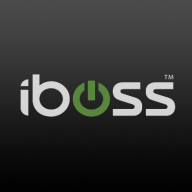


Azure Key Vault and JumpCloud compete in the security and identity management space. Azure Key Vault has the edge due to its extensive key management and integration capabilities, while JumpCloud excels in cross-platform support and IT setup simplicity.
Features: Azure Key Vault offers centralized secret management, seamless Azure integration, and strong security features. JumpCloud provides comprehensive device management, single sign-on capabilities, and robust directory services.
Room for Improvement: Azure Key Vault needs better mobile integration, simplified setup, and flexible pricing. Improvements in key rotation and third-party integration are also suggested. JumpCloud requires better synchronization with Microsoft 365, enhanced API reliability, and more MFA options.
Ease of Deployment and Customer Service: Azure Key Vault is widely deployed on public clouds, with strong support despite some ticket routing concerns. JumpCloud is praised for its straightforward setup and efficient management of diverse environments, earning high customer service marks.
Pricing and ROI: Azure Key Vault is cost-effective, providing significant ROI in security and compliance. JumpCloud offers a competitive pricing model based on user count, with flexible tiers appealing to small to medium enterprises.


| Company Size | Count |
|---|---|
| Small Business | 6 |
| Midsize Enterprise | 6 |
| Large Enterprise | 6 |
| Company Size | Count |
|---|---|
| Small Business | 15 |
| Midsize Enterprise | 11 |
| Large Enterprise | 27 |
| Company Size | Count |
|---|---|
| Small Business | 19 |
| Midsize Enterprise | 5 |
| Large Enterprise | 3 |
Iboss offers a comprehensive cloud-based security platform valued for its scalability and autonomous features, ensuring robust security with easy deployment and management capabilities.
Renowned for its robust security architecture, Iboss integrates seamlessly within diverse networks, delivering efficient granular filtering and advanced content categorization. Its single pane of glass console provides ease of management, allowing rapid scalability suitable for rapidly deploying environments. Operates in BYOD setups due to inline filtering without device installation. Integration with cloud-based applications enhances user control, and features like SASE, SSL inspection, and ChatGPT risk protection stand as highlights. Despite its strengths, users have pointed out areas for enhancement like direct navigation in reports, SSL decryption, and better cloud integration while having room to improve data loss prevention.
What are the most important features of Iboss?The usage of Iboss spans educational institutions, specifically K-12, to enforce internet policies, protect data, and support remote work environments. It provides web filtering and security frameworks to ensure safe browsing. Its platform-as-a-service model offers flexibility for both cloud-based and on-premises requirements, integrating seamlessly to deliver enhanced security features suitable for various deployment needs including zero trust, CASB, and network security for work-from-home setups.
Microsoft Azure Key Vault is a cloud-based data security and storage service that allows users to keep their secrets safe from bad actors.
Benefits of Microsoft Azure Key Vault
Some of the benefits of using Microsoft Azure Key Vault include:
Reviews from Real Users
Microsoft Azure Key Vault stands out among their competitors for a number of reasons. Two major ones are the overall robustness of the solution and its ability to protect and manage many different digital asset types. The many features that the solution offers allows users to tailor their experience to meet their specific needs. Its flexibility enables users to accomplish a wide variety of security and identity management related tasks. It empowers users to secure a wide array of assets. Users can keep many different types of secrets away from bad actors.
A cloud architect at a marketing services firm writes, “All its features are really valuable. It's really well thought-out. It's a complete turnkey solution that has all the concerns taken care of, such as access control and management. You can use it in infrastructure as code to create key vaults, APIs, PowerShells, CLIs, even Terraform. You can also use it in different services across the board. If you have app services, or virtual machines, Kubernetes, or Databricks, they can all use Key Vault effectively. In my opinion, in a DevSecOps, DevOps, or even in a modern Azure implementation, you have to use Azure Key Vault to make sure you're addressing security and identity management concerns. By "identity" I mean usernames, passwords, cryptography, etcetera. It's a full-blown solution and it supports most breeds of key management: how you store keys and certify.”
Roger L., the managing director of Cybersecurity Architecture at Peloton Systems, says, “The most valuable aspect of the product is its ability to keep our admin password accounts for keys and a lot of our high-value assets. It can manage those types of assets. So far, the product does a great job of managing keys.”
JumpCloud offers efficient device management, single sign-on, and integration capabilities. It integrates seamlessly with Microsoft 365 and Google Workspace, streamlining user management across diverse environments.
JumpCloud delivers device, user, and application management across platforms like Windows, Mac, Linux, and cloud services such as AWS and Azure. Acting as a cloud-based directory, it facilitates single sign-on and identity access management, making it an attractive replacement for Active Directory and LDAP directories. Its policy management and centralized directory simplify user and device administration, offering a user-friendly interface with flexible access control and remote management. Organizations can experience streamlined onboarding and offboarding processes, robust authentication, and scalability. Despite being powerful, room for improvement is noted in alert capabilities, comprehensive MDM for Windows, multi-tenant features, and API reliability.
What are the key features of JumpCloud?Companies across industries utilize JumpCloud for comprehensive management of devices and user identities. It is especially beneficial in technology-driven sectors where centralized directory services replace traditional Active Directory and LDAP models. Organizations employing platforms like AWS and Azure find it essential for maintaining efficient and secure access management.
We monitor all Enterprise Password Managers reviews to prevent fraudulent reviews and keep review quality high. We do not post reviews by company employees or direct competitors. We validate each review for authenticity via cross-reference with LinkedIn, and personal follow-up with the reviewer when necessary.